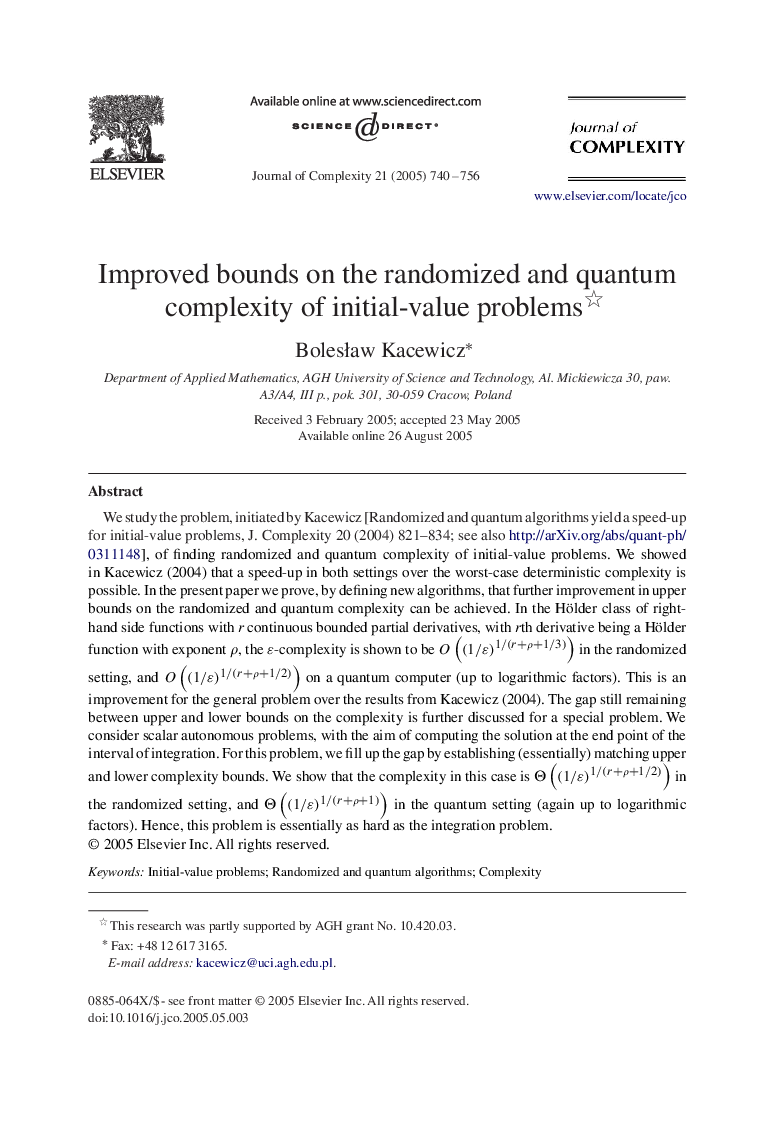| Article ID | Journal | Published Year | Pages | File Type |
|---|---|---|---|---|
| 9501389 | Journal of Complexity | 2005 | 17 Pages |
Abstract
We study the problem, initiated by Kacewicz [Randomized and quantum algorithms yield a speed-up for initial-value problems, J. Complexity 20 (2004) 821-834; see also http://arXiv.org/abs/quant-ph/0311148], of finding randomized and quantum complexity of initial-value problems. We showed in Kacewicz (2004) that a speed-up in both settings over the worst-case deterministic complexity is possible. In the present paper we prove, by defining new algorithms, that further improvement in upper bounds on the randomized and quantum complexity can be achieved. In the Hölder class of right-hand side functions with r continuous bounded partial derivatives, with rth derivative being a Hölder function with exponent Ï, the É-complexity is shown to be O(1/É)1/(r+Ï+1/3) in the randomized setting, and O(1/É)1/(r+Ï+1/2) on a quantum computer (up to logarithmic factors). This is an improvement for the general problem over the results from Kacewicz (2004). The gap still remaining between upper and lower bounds on the complexity is further discussed for a special problem. We consider scalar autonomous problems, with the aim of computing the solution at the end point of the interval of integration. For this problem, we fill up the gap by establishing (essentially) matching upper and lower complexity bounds. We show that the complexity in this case is Î(1/É)1/(r+Ï+1/2) in the randomized setting, and Î(1/É)1/(r+Ï+1) in the quantum setting (again up to logarithmic factors). Hence, this problem is essentially as hard as the integration problem.
Keywords
Related Topics
Physical Sciences and Engineering
Mathematics
Analysis
Authors
BolesÅaw Kacewicz,
